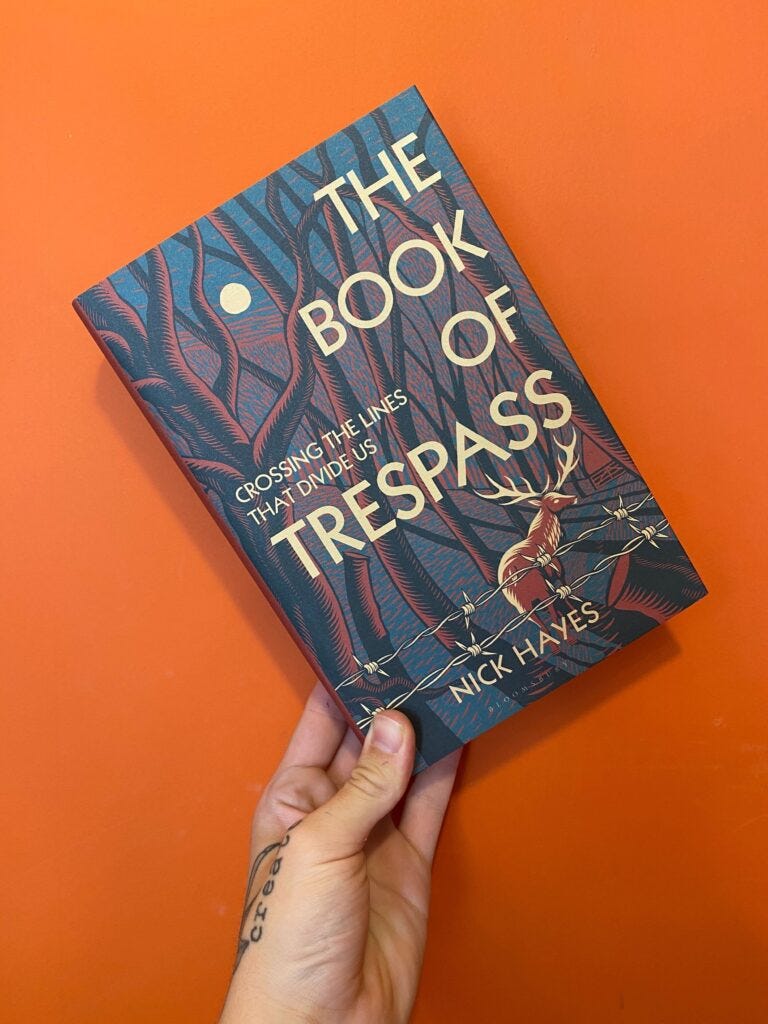Hello! We have some biiiiig announcements this month. Strap in. Are you strapped in? No? Well, here we go anyway.
The all-new Issue 17 will ship on December 5th. In fact, it’s already out of my hands and langushing in a queue at the printers. So now we play the waiting game.
One way NOT to play the waiting game, however, is to download our brand new digital bundle.
Usually, our policy is “print first” so that print subscribers get their physical mags before (or at least at the same time) as anyone buying a digital edition. It’s our way of supporting print media and bucking against so-called digital trends.
However! On this occasion, I’m too excited about the archive bundle to prevaricate.
For £20, you can now get all four Vol. 2 editions (in PDF and Epub) in a single download. That’s £5 each. And a naughty first look at Issue 17. That’s two years of creativity and a total of 352 impecable pages. Ridiculous.
The new digital archive bundle is the same idea as our Issues 1-13 Archive in that it keeps the ideas within New Escapologist alive and preserved and widely spread. The income from these sales, meanwhile, (100% profit) will help the New Escapologist machine to keep going through… my sabattical.
Sabattical?
Yes indeed. Affter Issue 17, I’m taking a six-month break from magazine production. It’s a reckless short-term business decision. We’ll lose momentum! But this is New Escapologist, not The Spectator. An incautious short-term decision is sometimes an excellent long-term one.
I’m a one-person enterprise and, after so much world-improving effort, I need a break. I want to spend more idle time in Europe next year and to generally dawdle about with a martini like Hawkeye from M*A*S*H.
Alas, six months off amounts to a whole year off from your perspective. I’ll start work again in June 2025, but you won’t see the result until December 2025.
I’ll continue the blog and this newsletter though, so you won’t be completely without a fix. It’s not a full-blown hiatus.
Now that all four issues financed by the 2023 Kickstarter have been released, there will be another Kickstarter campaign next year to finance another cycle of four. So look out for that. There’s little money in the Bank of Houdini at the moment, which is part of why I’m promoting the new PDF archive.
If you’re a subscriber and you’re still owed future issues, don’t worry, you’ll get ‘em. Thanks again for your support.
But that’s enough big announcements. Did you follow them all? There was a lot: Issue 17 // New Archive bundle // Old Archive bundle // my six months off // and look out for another Kickstarter at some point in the new year.
Now, let’s get on with some actual content. What’s our pet subject again? Ah yes. Escaaaaaaaaaaaaape!
Robert Wringham
Editor, New Escapologist magazine
www.newescapologist.co.uk
Naughty, Idle, Ungodly
The Book of Trespass by Nick Hayes (a very early contributor to New Escapologist, fact fans) is brilliant. It’s well researched and far wider reaching in its politics than I’d imagined.
In my bones I like the idea of trespass — of sticking it to impossibly wealthy gods of the establishment with little more than fleet-of-foot mischief — but the book goes intelligently into the intersections of racism, feminism, slavery and many other topics, underpinned as they are by exclusion and enclosure. They may one day be brought to heel, Hayes shows us, by a mass movement in land justice. As well as telling unapologetically magical stories of walks in the countryside, Hayes makes painstaking research dives into law and statute. It’s a remarkable book.
The crossover of trespass and escape is probably obvious — do we not aspire to roam? — and we’ve covered the arts of trespass in the magazine before, perhaps most prominently in Issue 12. But look at this majesty from Hayes’ chapter on gypsies and vagabonds:
In 1388, the Statute of Cambridge placed […] restrictions on the movement of people […] The law applied to a broad church of people: itinerant labourers, tinkers, pedlars, unlicenced healers, craftsmen, entertainers, prostitutes, soldiers and mariners. They were freelancers whose jobs did not require them to be tethered to one place or another. They were called ‘masterless men,’ and they roamed as lone wolves or packs of wild dogs, haunting the countryside, towns and minds of their betters. […] Vagrancy was vague — it sought to criminalise not antisocial behviour, but rather a state of being, a social and economic status, a type of person.
Then, under an Act of law set by Queen Mary in 1554, Gypsies and vagabonds would be hanged.
However, in a detail that expresses the real root of the fear, the legislation allowed them to escape prosecution as long as they abandoned their nomadic lifestyle or, as the Act put it, their “naughty, idle and ungodly life and company.” It was not their race, origin or palm reading that upset the state, it was their mobility.
concluding that:
Fixity is the orthodoxy of the modern European age […] Property simply cannot comprehend mobility.
Couldn’t have put it better myself.
1999: The Year of the Cubicle Movie
[Unlike] monster movies showing cold war anxieties and 21st-century horror movies conveying fears of acts of terror, [the films of 1999] were not about surviving the present, because the present was actually going well. They were about being tired of that stable present and looking for a radically different future.
Maybe. Maybe-maybe. For me it was more about being told to sit down and shut up after three years of reading Foucault in a university library and having the youthful desire, no the need, to strike out into art and tear the world to pieces. And not being allowed to. For reasons I’m still not completely clear on.
He’s right to note that The Matrix, Office Space, Fight Club, American Beauty, and Being John Malkovich were all released in 1999 and all feature “a main character tired of the stability, monotony, and uneventfulness of their [lives].”
That uneventfulness, to me, didn’t come from “the present going well,” by which he means culturally and economically, but from the first cracks appearing in the old doxa that “work brings freedom” and the widespread failure to understand the opportunities presented by the Internet.
Don’t Be Like Sitcom Man
There’s a BBC radio sitcom called There is No Escape:
a sitcom about a man dissatisfied with his life, whose feeble attempts to run away invariably end with him traipsing home defeated.
Sounds great!
Unfortunately it’s rubbish. Not only is it deeply unfunny, its overriding tone is “bicker.” Every moment seems to be two people nagging, belittling each other, acting according to immediate self-interest, making sarcastic remarks about previous sarcastic remarks. In four hours, there is no other tone.
I took GCSE drama at school and, before we learned anything, we’d sometimes default to this argumentative tone. This was probably because we were erroneously looking to create “drama” between two people instead of creating remarkable situations for them. Or maybe argument was just part of our difficult lives outside drama class so it was something we could easily reach for in the heat of the moment. Whatever the reason, an early lesson of GCSE drama was not to bicker, that there are other ways to exchange information (between actors and between actors and audience).
Even when I realised I was not going to enjoy There is No Escape, I thought I’d at least be able to tell you about some failed (fictional) escapes. Trouble is, he doesn’t really make any serious bids for escape at all. He does, however, have some character flaws which one imagines would hinder an escape. So let’s focus on those. Here’s how not to be like Sitcom Man.
Sitcom Man competes when he should cooperate. One episode has him struggling against a colleague for a promotion, despite the fact that promotion won’t solve his problems (he’ll still be employed by the market research company he despises). Escapologists shouldn’t compete in this way. Walk away from the dog-eat-dog workplace and use your calories and mindpower with others in service of something better. It’s not easy. But competing for promotion will not help you or anyone else.
Sitcom Man is lazy when it comes to finding solutions to his problems. His disappointment at a local shop’s failure to provide good food–“frozen turkey dinosaurs” being their typical fare–does not lead to the idea that he could set up a system by which he no longer depends on the hopeless shop simply because it is the nearest one. Growing his own veg, ordering a veg box, even just shopping online at shitting Tesco do not occur to him. That would require a modicum of imagination and a few minutes of application.
Sitcom Man hates when he should love. Actually, he doesn’t even seem to know what love is. Sitcom Man can’t get along with his girlfriend. To this I’d say: she’s not your girlfriend, Sitcom Man. You do not have a romantic relationship. If you have a perpetually oppositional stance against the person who lives with you and sees herself your partner, you’re failing them at the most fundamental level. In what way is this person your “girlfriend,” Sitcom Man? Explain yourself.
Sitcom Man falls back on old habits when he should be creative. It’s the old thinly-written sitcom problem of characters never learning, never trying anything twice. He complains and mopes and never accepts responsibility. Much like his writer who somehow never learned the basic lesson of allowing characters to speak without arguing, Sitcom Man fails to use the tools presumably available in his universe.
This sitcom is supposed to be about Sitcom Man’s escape attempts but he doesn’t try to make a break in any meaningful way; he just reacts pathetically to miserable events and ultimately accepts them. It’s a long way from Reginald Perrin, a far-older sitcom in which a middle-aged executive with a meaningless job and an unfulfilling family life realises he’s been robbed of his youth and takes exciting, eccentric action. While we’re making this comparison, I always got the feeling that any conservativism inate to Reggie Perrin was a situational product of its time; There is No Escape seems willfully conservative in its depiction of what it insists is an unalterable status-quo but really isn’t.
The satus-quo depicted in There is No Escape is one in which couples don’t like each other, jobs are to be endured, and turkey dinosaurs are YOUR DINNER, young man.
Or, you know, maybe it’s just supposed to be a pipe through which the funny is pumped into our patiently-waiting ears. They just forgot to run anything down it.
Heterotopias
Returning to The Book of Trespass, there’s a chapter about Grow Heathrow, a live-in protest encampment that ran for 19 years. Nick Hayes notes that:
Foucault has a word for places such as these. He called them heterotopias — spaces of outsiders forged deep inside society, spaces that reflect the orthodoxy of that society by arranging themselves differently. These spaces are distinct from utopias in that they are real, they actually exist, and they manifest their ideologies in real space. Someone has done the plumbing, set up the solar panels, installed the long-drop compost toilet. They work; there are alternatives.
Yes. Yes. Yes.
There are alternatives.
Some alternatives are not merely theoretically. We can point directly at them. We can go there.
The Findhorn Community in Scotland springs to mind. The Centre for Alternative Technology in Wales. Until last month there was Schumacher College in England.
Every tiny home, every squat, every not-for-profit or public interest company, every commune, every inhabited van or canal boat, every tent-as-residence, every magazine that refuses adverting (!) — There are thousands of heterotopias, thousands of alternatives, out there. Maybe millions. Isn’t that exciting?
We should all be on the lookout for heterotopias. Tell others about them. Believe in alternatives.
Incidentally, my other notes from The Book of Trespass, though they may not be as directly Escapological as this one and may also deluge you, dwell here.
Kick This Place
Hey look, it’s a Workplace Woe:
I’m a pawn, a worm, and a fart.
To the people who pay my paycheck, I’m a scheduled layoff.
They’ve slow-fired my coworker, who is now stuck in semi-hired limbo. It’s as confusing as it sounds. They still expect him to do a good job too.
I hope he finds a new job soon so he can kick this place.
From a nice post on the fast web.
Letter to the Editor: Stuff for Your Stuff
To send a letter to the editor, simply write in. You’ll get a reply and we’ll anonymise any blogged version.
Friend Paula writes:
Your mention of the egg poaching cups and of excess production reminded me of a thought I had recently: one signal that you are consuming too much is when you start buying stuff for your stuff.
A tea cozy for your kettle or socks for your golf clubs or a fluffy cover for your toilet lid (yes, these exist). Even buying storage for your stuff can lead to realizing you have some space to fill and buying more stuff.
With our tiny house we have optimized space to the point that if we optimize or organize any further we will suddenly have storage space available. And nothing good ever happens in that situation.
In defence of our tiny house, we built it with the intention that it would outlive us and with the notion that we would be able to hold and protect the forest on our property (about five acres worth, plus a protected wetland) until we are gone. We took only as much clearing as we needed to build the house and are preserving the rest.
We do miss the access aspect of city living sometimes. But there are compensations in the form of endless forest baths and peace and quiet (of the forest variety, which is not really silent at all – at least not all the time.)
P
And that’s all for November.
Do you remember the headlines from the top of this email? Of course you do. Please pre-order Issue 17, which is shipping on December 5th.
Please also consider downloading the new incredible-value digital archive bundle for PDFs and Epubs of Issues 14-17.
You can also still get the older bundle of Issue 1-13 PDFs.
My word, I’m looking forward to six months of Hawkeye martinis,
Your friend and neighbour,
Robert Wringham
www.newescapologist.co.uk








